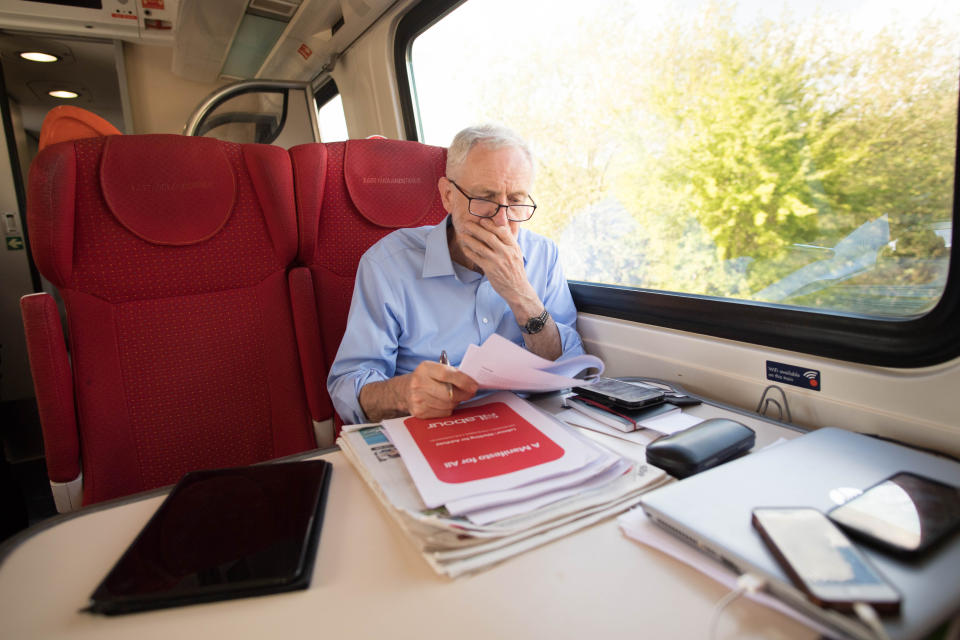Labour vows to slash rail fares by a third and save passengers £1,000 a year

Labour is promising to slash rail fares by a third across the UK if it wins the general election, saying the move would save commuters more than £1,000 a year.
The opposition party also unveiled plans to scrap child fares altogether, making it free for those aged 16 and under.
The announcement comes on the same day thousands of passengers face disruption as one of the longest rail strikes in history begins on South Western Railway lines.
The party’s radical plans would affect only fares that are regulated by the UK government, including peak time and season ticket fares and making up around half of all tickets sold.
Labour claimed the plans mark the “biggest ever reduction” in rail fares. It has already pledged to re-nationalise much of the rail industry.
The party also promised “fair fares” for part-time workers, ensuring those who commute for fewer than five days a week pay no more per journey than full-time workers on weekly tickets.
READ MORE: What the 2019 general election could mean for the pound
Labour said in a press release it would also introduce a nationwide Oyster-style and contactless ticketing system.
Leader Jeremy Corbyn said: "Travelling by train is my favourite way of getting around the country but for too long a fragmented and privatised rail system has ripped-off passengers.
"Taking back control of our railways is the only way to bring down fares and create a railway network that is fit for the future.
"Labour will bring about real change on the railways because we are on the side of passengers."
READ MORE: Uber refused licence to operate in London after 14,000 uninsured trips
But Conservative transport secretary Grant Shapps said Corbyn’s plans were “ideological” and his wider economic programme would “wreck the economy.”
“The Conservatives will improve punctuality by integrating parts of the rail network, make ticketing and pricing more transparent and will invest £500 million in reopening branch lines closed under Labour,” said Shapps.
He added: “You simply cannot trust Corbyn to deliver what he claims.”
A spokesman for the Rail Delivery Group, which represents train operators, said they would support fare reductions if it was paid for by the UK taxpayer rather than rail companies.
He said: “Rail companies have been calling for some time for changes in regulation to enable an easier to use, better value range of fares but it’s a red herring to suggest that reforming fares needs a change of ownership.
“Overall fare levels will always be a matter for elected politicians in deciding the balance of farepayer and taxpayer funding.”
Tony Miles, a journalist at Modern Railways magazine, told the BBC successive governments had shifted funding for the railways from the taxpayer to passengers, unlike in much of Europe.
He said: “Labour] is saying it would get most of the money, £1.5bn, from things like the vehicle excise duty, so road users would be paying significantly more in some way to getting people onto public transport, which overall some people might welcome if it eases the congested roads.”

 Yahoo Finance
Yahoo Finance 